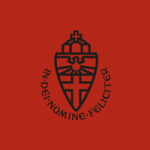项目介绍
PH.D. REQUIREMENTS: COURSES:
The Ph.D. in Anthropology involves two academic years (four semesters) of coursework prior to the Ph.D. qualifying examination, dissertation field research, and the writing of a dissertation. First-year plans of study require enrollment in the two semester Proseminar (ANT 501-502): a sequence taught by two instructors that covers both classic and contemporary texts and topics. First-year students are also required to enroll in the Coseminar (ANT 503a/b), a fall semester sequence of two half-term courses whose instructors change each year and whose themes are anchored in the instructors’ recent research. Like first-year students, second-year students are required to enroll in the Coseminar. First- and second-year students are all required to enroll in the department’s field practicum (ANT 505), which is offered every other year in the spring. Overall, first- and second-year students take a minimum of three graded seminar courses per semester: at least two within the department (required and/or elective) and one elective course that may be taken within or outside the department. Many of the department’s elective courses are organized as half-semester seminars so as to expose students to a wider array of themes and faculty.
Assigned work for all courses must be completed by the end of the spring semester for students to be eligible for summer funding. (Announcements concerning University summer funding opportunities are generally made in January; most anthropology students do language training and/or pre-dissertation exploratory research and other preparatory work during their first two summers.)LANGUAGE(S):
Students are required to demonstrate competence in one scholarly language besides English. Students are urged to fulfill the scholarly language requirement early in the fall of their first year of study (satisfaction of this language requirement is a prerequisite for the second-year General Examination).PRE-GENERALS REQUIREMENT(S):
In September of their first year, each student is assigned a first-year mentor. In consultation with the director of graduate studies (DGS), the student works out a plan of study that is reviewed at least twice that year. During the second year, each student convenes a committee of two advisory “co-chairs” from among departmental faculty, with whom the student works in preparation for the second-year General Examination; additionally, a third faculty member may either be recruited by the student or assigned by the DGS specifically to evaluate the written and oral components of the examination.
The First-Year Examination, taken in May, is a comprehensive assessment of students’ grasp of the foundations of social/cultural anthropology, organized around, but not limited to, readings in the Proseminar (ANT 501-502).GENERAL EXAM:
Along with strong completion of first- and second-year departmental courses and passing the First-Year Examination, the General Examination is a key prerequisite qualifying students for continued Ph.D. degree candidacy. The written component consists of two or three essays and bibliographies relating to theoretical/topical and area scholarship developed by students in consultation with their committees. The first essay together with its bibliography is due one week after the end of second-year spring-term classes; the remaining essays and bibliographies being due by the end of that summer. Essays are limited to 12,000-18,000 words in all (i.e., three 4000-6000 word essays or two 6000-9000 word essays). Before the summer recess, students receive comments from their committees based on the first essay to use as guidance toward completing their Generals writing.
The oral component of the General Examination (held during the first month of the fall semester) involves a discussion of the written essays among the student and student’s Generals committee.
Completion of all coursework from previous semesters and completion of the language requirement are prerequisites for Generals.QUALIFYING FOR THE M.A.:
The Master of Arts (M.A.) degree is normally an incidental degree on the way to full Ph.D. candidacy and is earned after successfully passing all parts of the General Examination. It may also be awarded to students who, for various reasons, leave the Ph.D. program, provided that the following requirements are met: successful completion of all coursework through the first two years of study, and completion of the language requirement.TEACHING:
All graduate students are expected to assist in teaching at least one undergraduate course any time during their residence at Princeton after completing the first-year program. Teaching is considered to be an important part of graduate education; however, teaching is not a requirement of Graduate School fellowship support.POST-GENERALS REQUIREMENT(S):
Each student is required to make a formal presentation of their proposal for dissertation fieldwork (doctoral research). The proposal is first submitted in writing to the student’s advisory committee for assessment; after approval, it is presented orally for discussion to graduate program faculty and students. The department proposal presentations are generally completed no later than early in the spring term of the third year and are usually based on the student’s external dissertation research grant applications. While many students can accomplish dissertation fieldwork using their University fellowship, the department strongly encourages students to apply for external funding for several reasons: as an important professionalizing experience; as a means for gaining the time and flexibility that sociocultural anthropologists often need to meet fieldwork’s travel and language fluency demands; and finally, because doing so typically enables students to “bank” one year of University fellowship support for later use during post-fieldwork analysis and writing, subject to the financial policies of the Graduate School.DISSERTATION AND FPO:
Students who have passed the General Examination are eligible to submit a dissertation based on original research. This research is supervised by the student’s advisory committee co-chairs (designated as dissertation “readers”). Departmental acceptance of the dissertation (achieved once the student’s two dissertation readers have both approved a revised draft) qualifies the candidate for the final public oral (FPO) examination. This examination is based on the dissertation but extends beyond it to matters of the discipline as a whole, and confirms the candidate’s readiness for a career in the profession. The FPO may be held anytime during the academic year, based on a departmental request to the Graduate School one month prior to the proposed examination date. Two additional faculty are appointed (in consultation with the student) as dissertation “examiners” for FPO purposes. Subject to approval by the department and the Graduate School, one of these may be a relevant specialist of the student’s choosing from outside Princeton. There are at least three principal examiners, all of them normally members of the Princeton faculty at the rank of assistant professor or higher, at least two of whom have not been principal readers of the dissertation. At least one of the examiners must be from the student’s home department. The student and the examiners should be present in person. In no case may there be fewer than two examiners who participate in person, so as to respond to the student’s presentation, comment on the dissertation text, and pose questions. In order to defend in May of any year, a candidate must submit a complete dissertation draft by February 1 to each of their two main advisers (i.e., to both dissertation “readers”).
联系方式
电话: 609-258-3000相关项目推荐
KD博士实时收录全球顶尖院校的博士项目,总有一个项目等着你!





